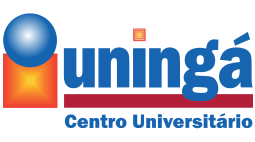THE CONTRIBUTIONS OF EQUINE THERAPY FOR THE PSYCHOMOTOR DEVELOPMENT OF THE CHILD WITH AUTISTIC SPECTRUM DISORDER
Keywords:
autism, equine therapy, psychomotorAbstract
This papers to investigate the contributions of Equoterapia for the psychomotor development of the child with ASD (Autistic Spectrum Disorder). In order to do so, we conducted research on databases and indexers, searching for articles, dissertations, theses, books on specialized sites, on the subject in question, selecting materials related to the area of Psychology and Special Education. Autism is a syndrome that is characterized by lack of interpersonal relationship, difficulty in communication, repetitive movements and stereotypies, as well as by psychomotor difficulties, the autistic child does not adequately develop the notions of Corporal Scheme, also impairing the development of static equilibrium , of laterality, of the notion of reveribility, considered basic functions necessary for the acquisition of autonomy and cognitive learning. One of the treatments indicated is Equoterapia, a therapeutic method that uses a horse as instrument, aiming to work motor, cognitive and affective aspects, for a biopsychosocial development. The interaction with the horse contributes to the development of new forms of communication, socialization, self-confidence and self-esteem, as well as the satisfaction of riding on the horse, who accept them as they are, cause them to try to show their feelings through expressions, sounds or words, increasing their cognitive ability.
Downloads
Downloads
Published
How to Cite
Issue
Section
License
I declare/we declare that the text submitted here is original, of my own authorship and does not infringe any type of third party rights. The content is my/our sole responsibility. Possible research involving animals and/or human beings is in accordance with Resolution 196/96 of the National Health Council and its complements. I declare that I am/we are in possession of the written consent of patients and that the research and its procedures were timely and adequately approved by the Ethics Committee of the institution of origin. We further declare that all institutional affiliations and all sources of financial support for the work are duly informed. I certify that there is no commercial or associative interest that represents a conflict of interest related to the submitted work. If there is commercial interest, in addition to the technical and academic ones, in the publication of the article, the information will be reported during the text.







































